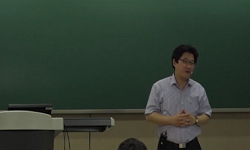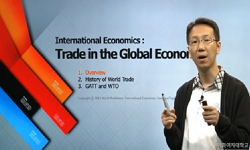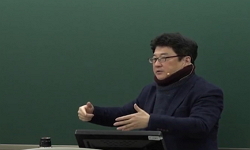- contents
- Contents = ⅲ
- Contributors = xi
- Preface = xiii
- Introduction = xv
다국어 입력
あ
ぁ
か
が
さ
ざ
た
だ
な
は
ば
ぱ
ま
や
ゃ
ら
わ
ゎ
ん
い
ぃ
き
ぎ
し
じ
ち
ぢ
に
ひ
び
ぴ
み
り
う
ぅ
く
ぐ
す
ず
つ
づ
っ
ぬ
ふ
ぶ
ぷ
む
ゆ
ゅ
る
え
ぇ
け
げ
せ
ぜ
て
で
ね
へ
べ
ぺ
め
れ
お
ぉ
こ
ご
そ
ぞ
と
ど
の
ほ
ぼ
ぽ
も
よ
ょ
ろ
を
ア
ァ
カ
サ
ザ
タ
ダ
ナ
ハ
バ
パ
マ
ヤ
ャ
ラ
ワ
ヮ
ン
イ
ィ
キ
ギ
シ
ジ
チ
ヂ
ニ
ヒ
ビ
ピ
ミ
リ
ウ
ゥ
ク
グ
ス
ズ
ツ
ヅ
ッ
ヌ
フ
ブ
プ
ム
ユ
ュ
ル
エ
ェ
ケ
ゲ
セ
ゼ
テ
デ
ヘ
ベ
ペ
メ
レ
オ
ォ
コ
ゴ
ソ
ゾ
ト
ド
ノ
ホ
ボ
ポ
モ
ヨ
ョ
ロ
ヲ
―
http://chineseinput.net/에서 pinyin(병음)방식으로 중국어를 변환할 수 있습니다.
변환된 중국어를 복사하여 사용하시면 됩니다.
예시)
- 中文 을 입력하시려면 zhongwen을 입력하시고 space를누르시면됩니다.
- 北京 을 입력하시려면 beijing을 입력하시고 space를 누르시면 됩니다.
А
Б
В
Г
Д
Е
Ё
Ж
З
И
Й
К
Л
М
Н
О
П
Р
С
Т
У
Ф
Х
Ц
Ч
Ш
Щ
Ъ
Ы
Ь
Э
Ю
Я
а
б
в
г
д
е
ё
ж
з
и
й
к
л
м
н
о
п
р
с
т
у
ф
х
ц
ч
ш
щ
ъ
ы
ь
э
ю
я
′
″
℃
Å
¢
£
¥
¤
℉
‰
$
%
F
₩
㎕
㎖
㎗
ℓ
㎘
㏄
㎣
㎤
㎥
㎦
㎙
㎚
㎛
㎜
㎝
㎞
㎟
㎠
㎡
㎢
㏊
㎍
㎎
㎏
㏏
㎈
㎉
㏈
㎧
㎨
㎰
㎱
㎲
㎳
㎴
㎵
㎶
㎷
㎸
㎹
㎀
㎁
㎂
㎃
㎄
㎺
㎻
㎽
㎾
㎿
㎐
㎑
㎒
㎓
㎔
Ω
㏀
㏁
㎊
㎋
㎌
㏖
㏅
㎭
㎮
㎯
㏛
㎩
㎪
㎫
㎬
㏝
㏐
㏓
㏃
㏉
㏜
㏆
https://www.riss.kr/link?id=M7305392
- 저자
-
발행사항
Seoul, Korea : Korea Development Institute, c1998
-
발행연도
1998
-
작성언어
영어
- 주제어
-
DDC
338.6048 판사항(18)
-
ISBN
8980630433
-
자료형태
일반단행본
-
발행국(도시)
대한민국
-
서명/저자사항
Korea's choices in emerging global competition and cooperation / edited by Lee-Jay Cho and Yoon Hyung Kim.
-
형태사항
xxi, 367 p. : ill. ; 24 cm.
-
일반주기명
"Papers presented at the conference on 'Korea's Choices in Emerging Global Competition and Cooperation' ... in Kahuku, Oahu, Haeaii during 23-26 July 1995"--Pref.
Includes bibliographical references. - 소장기관
-
0
상세조회 -
0
다운로드
부가정보
목차 (Table of Contents)
- contents
- Contents = ⅲ
- Contributors = xi
- Preface = xiii
- Introduction = xv
- 1. Reorganization of Korea's Macroeconomic Management / Sung-hee Jwa = 1
- Overview of Korea's Past Macroeconomic Management and Performance = 3
- Existing Patterns of Macroeconomic Management = 7
- Distortions in Macroeconomic Management = 7
- Short Horizon in Macroeconomic Management = 9
- Political Democratization and political Economy in Macroeconomic Management = 9
- Changing Prospects in Macroeconomic Policy Environments = 10
- Globalization and Its Implications for Economic Management = 10
- Economic Liberalization and the Problems of Direct Regulation = 11
- Capital Flow Liberalization and Its Implications for Macroeconomic Management = 11
- Democratization and the Political Business Cycle = 11
- Reforms in Macroeconomic Policy Regime = 12
- Role of the Government in Macroeconomic Management = 12
- Indirect Macroeconomic Management System = 17
- Maintaining a Macroeconomic Policy Stance Free of Politics = 21
- Macroeconomic Policy Issues in a Small Open Economy Setting = 23
- Korea's Capital Flow: Overall Pattern, Determinants, and Prospects = 25
- Independence of Monetary Policy and Exchange-Rate Regime = 31
- Sterlization as an Independent Policy Instrument = 32
- Macroeconomic Policy Mix Under Capital inflow Pressures = 39
- Summary = 46
- Appendix 1. Historical Changes in Restrictions on Capital Flows and Exchange Transactions since 1990 = 48
- Direct Investment = 48
- Portfolio Investment = 48
- Exchange Controls = 48
- Appendix 2. Long Term Plan for Korea's Liberalization of Foreign-Exchange and Capital Transactions = 50
- Current Account Transactions = 50
- Capital Account Transactions = 51
- Foreign-Exchange Market = 51
- Comments : Vittorio Corbo = 57
- Michael R. Darby = 61
- 2. The Nature of the National Economy in the Borderless World and the Role of the Government / Jongho Yoo = 65
- Past and Future Changes in the World Economy = 66
- Past Changes = 66
- Future Changes = 70
- Changes in the Nature of the National Economy = 71
- Economic Characteristics = 71
- Emergence of Local Economies of Distinct Characteristics = 72
- Interindustry Relations = 73
- Concept of Nationality = 73
- Policy Implications for the Korean Economy = 73
- Market Opening and Industrial policy = 73
- Principle of Nondiscrimination = 74
- Resource Attraction = 75
- Rules of the Game = 77
- Conclusion: Role of Government = 80
- Comments : Robert E. Baldwin = 86
- Stanley Katz = 90
- Chang H. Lee = 93
- 3. Industrial Structural Changes and Enhancing Competitiveness / Kyoung-Hwie Mihn = 97
- Structural Changes in Industry and Trade = 97
- Structural Changes in the Manufacturing Sector = 98
- Changes in Comparative Advantage = 103
- International Comparison of Manufacturing Structures = 107
- A Vision for Newly Competitive Industries = 109
- Rationale for a Vision = 109
- Prospects for the Development of High-Technology Industries to the Year 2005 = 110
- Policies for Enhancing Industrial Competitiveness = 114
- The Role of Government = 114
- Competition and Cooperation = 115
- Internationalization and Strategic Alliances = 118
- Industrial Finance = 119
- Technological Development = 120
- Concluding Remark = 121
- Comments : Lawrence B. Krause = 127
- Peter A. Petri = 132
- 4. Korean Multinationals in the Pacific Basin: A Comparative Study of Foreign Investment and Trade Strategies / Dennis J. Encarnation = 137
- A Brief Sketch of Korean FDI Aboard = 138
- Shareholdings: Majority Subsidiaries Versus Minority Affiliates = 141
- Sales: Foreign Investment Versus International Trade = 145
- Value-Added: Offshore Production Versus Overseas Distribution = 150
- Markets: Local Versus Expert = 154
- Trade: Intracompany Shipments Versus Arm's-Length Trade = 158
- Conclusions: Korea Multinationals in Comparative Perspective = 162
- A trans-Atlantic Model = 164
- A trans-Pacific Model = 165
- Comments : Duk-Choong Kim = 174
- 5. Creating Extrafirm infrastructure of Institutions for Small and Medium-Sized Businesses / Joon-Kyung Park = 179
- The Prospects of Technological Development = 181
- Structure and Characteristics of the SMB Sector = 185
- Recent Development in the SMB Sector = 185
- Subcontracting System = 190
- Localized Networks of SMBs = 194
- Innovative Policies Toward SMBs = 196
- Research Cooperation and Innovation Consultancies for SMBs = 196
- Technology Transfer Centers = 197
- Regionalization of Science and Technology = 198
- Communal Support Structure = 200
- Concluding Remarks = 200
- Comments : Richard M. Locke = 219
- Michael J, Piore = 224
- 6. Corporate Governance: The Structure and Issues in Korea / Young-Ki Lee = 229
- Corporate Governance: A theoretical Review = 231
- Separation of Ownership and Management; Agency Problem = 231
- Stakeholder Concept in Corporate Governance = 232
- The Industrial Group and Organizational control = 234
- Corporate Governance, Innovation, and Competitiveness = 235
- The Role of Debt in Corporate Governance = 236
- Comparative Analysis of Governance Structure = 237
- The American System of Market Discipline = 238
- Japanese Governance System: Organizational Control = 241
- German Dual Board System and the "Power of Banks" = 246
- Corporate Governance Structure in Korea = 248
- Corporate Structure in Korea = 248
- Ownership and Control of Korean Corporations = 249
- Government Policies on Corporate Ownership and Control = 249
- Role of the Government in Corporate Governance = 256
- Comparison of Korean Corporate Governance Structure with Foreign Systems = 257
- Search for a New Model of Corporate Governance in Korea = 261
- Why is a New Governance System Required in Korea? = 261
- Contemporary Issues in Korea Corporate Governance = 262
- Proposing a New System of Corporate Governance in Korea = 263
- Financial Commitment Through Bank-Industry Alliances = 267
- Summary and Conclusion = 268
- Comments : E. Han Kim = 283
- William H. Lazonick = 286
- John M. Stopford = 295
- 7. Building Scientific and Technological Infrastructure / Won-Young Lee = 301
- The Korean Experience in Building Industrial Development and Technological Capabilities = 302
- Catching-up Product Cycle Model of Industrialization = 302
- Building Technological Capability in Korean Firms = 303
- Pattern of Specialization in Technological Trajectory = 306
- The Future Course of Industrial Development = 307
- Global Environments = 307
- Industrial Deepening = 308
- Strategic Industrial Policy = 310
- Diffusion-Oriented S&T Policy = 311
- Restructuring Government R&D Programs = 312
- Development of the National R&D Program = 312
- Priority Setting in the NRDP = 314
- The Total Size of NRDP = 316
- Coordination of R&D Programs = 317
- Promotion of Cooperation Among Industry, Academia, and Research Industries = 318
- Research Institues = 318
- Major Actors of R&D = 318
- Weak Links Among Industry, Academia, and GRIs = 319
- Vitalization of University Research Capabilities = 321
- Restructuring of GRIs = 322
- Manpower Training and Education = 323
- National Education System = 323
- Science and Technology Education = 324
- Supply and Demand of S&F Manpower = 324
- Recent Reform in Education = 325
- Education System More Responsive to Markets = 326
- Strengthening the S&T Information Network = 327
- Main Carriers of the S&T Information Network = 327
- Barriers to Equal Access to S&T Information = 328
- Policy Options = 328
- Concluding Remarks = 330
- Comments : Dieter Ernst = 333
- Nathan Rosenberg = 346
- 8. Conclusions and Challengers / Lee-Jay Cho and Yoon Hyung Kim = 355
- Industrial and Corporate Structure = 356
- Labor Relations = 357
- Technological Development = 358
- Macroeconomic Policy and Management = 360
- International Markets and Alliances = 361
- Challenges for the Korean Economy = 363















